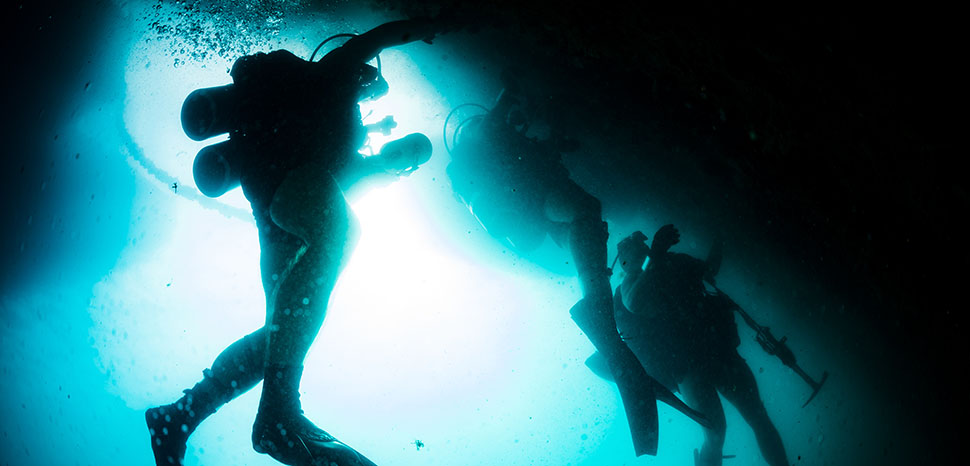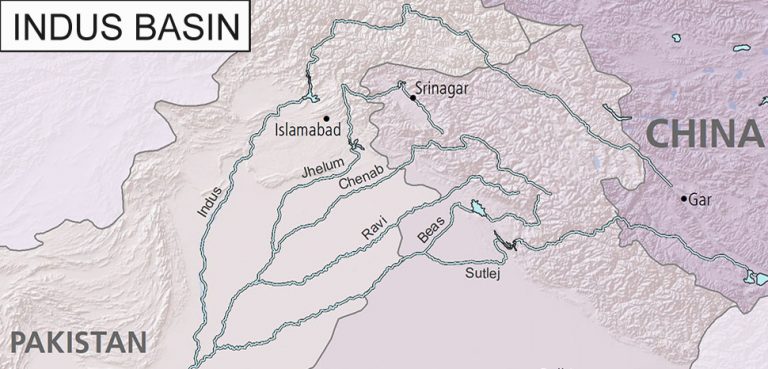Immediately after the attack on the Nord Stream pipelines became known, Russia was reflexively accused of blowing it up by Western experts, media, and politicians. The sabotage was interpreted as part of Russian hybrid warfare, which also turns energy supply into a political weapon. The blame was based on the experience with Russia’s energy policy toward Ukraine, as well as on psychological-symbolic and practical reasons.
According to this interpretation, the explosion was meant to put Europe in fear of the approaching winter and discourage it from continuing to support Ukraine militarily and politically. In addition, the attack could be interpreted as a sign that Russia is ready to attack critical infrastructure outside the war zone. Finally, the acts of sabotage on the Nord Stream pipelines could also be interpreted as revenge for EU sanctions against Russia.
Moscow’s calculation to deliberately drive up European gas prices and avoid the risk of a contractual penalty for suspending its deliveries by destroying Nord Stream 1 were also variously cited as tangible reasons. This was credible, according to proponents of the assumption of Russian perpetration, because the pipelines had become irrelevant since the EU and Germany in particular used the Ukraine war as an opportunity to bring forward the ‘Energiewende’ (energy transition) to renewable energy and henceforth rely more on American LNG. The possibility of a self-harming act by Moscow was substantiated by the fact that Russia had already incurred its own economic damage by curbing and stopping gas supplies to Europe via Nord Stream 1.
The United States, on the other hand, derives far less symbolic, but enormous practical benefit from the incident. They have seen the EU’s natural gas supply diversification efforts in jeopardy since at least 2016 and feared that Gazprom, as a tool of the Kremlin, could increase Europe’s dependence on Russia. Ultimately, what is significant is that the U.S. sees the EU’s cutting off of cheap natural gas from Siberia as a “a tremendous opportunity to once and for all remove the dependence on Russian energy and thus to take away from Vladimir Putin the weaponization of energy as a means of advancing his imperial designs,” as US Secretary of State Antony J. Blinken stated at a joint press conference with Canadian Foreign Minister Mélanie Joly on September 30, just four days after the attack on the Nord Stream pipelines. Moreover, this development weakens Russian influence in Europe, damages the very foundations of Germany’s political and economic ties with Russia, drives up energy prices in Europe and consequently production costs significantly, and thus worsens European and especially German export opportunities. As the icing on the cake, the United States can even increasingly export its LNG, which is not competitive with Russian natural gas, to Europe and thus also derive an economic benefit from the situation.
US criticism of the pipeline and threats of sanctions were not new. However, US rhetoric intensified, especially under the impression of a possible outbreak of war in Ukraine. In July 2021, when a German-US agreement over the opening of Nord Stream 2 was being discussed, the Biden administration was strategically aiming to limit Russia’s ability to use energy as a weapon against Ukraine and other states. At the press conference following the meeting with Angela Merkel, Joe Biden is quoted in media outlets such as CNBC as saying “while I reiterated my concerns about Nord Stream 2, Chancellor Merkel and I are absolutely united in our conviction that Russia must not be allowed to use energy as a weapon to coerce or threaten its neighbors.” The Atlantic Council also spoke of a “nuclear option” proposed by the American side (and reportedly opposed by Germany) introducing a “snapback” mechanism to halt gas deliveries from Russia if Ukraine is attacked or coerced. The respected Redaktionsnetzwerk Deutschland (RND) also reported at the time that an agreed “emergency shutdown” (Notabschalter) as a “complete embargo on Russian natural gas.”
In January 2022, Undersecretary of State Victoria Nuland and Ned Price, a State Department spokesman, said “if Russia invades Ukraine, one way or another, North Stream 2 will not move forward.” US President Joe Biden is particularly clear in his famous quote in a joint press conference with German Chancellor Olaf Scholz on February 7, 2022, when he responded to a question from a German reporter: “If Russia invades, that means tanks and troops crossing the border of Ukraine again, then there will no longer Nord Stream 2. We will bring an end to it.” In response to the reporter’s supplemental question, Biden said: “I promise you; we will be able do that.” Indirectly, a Polish member of the European Parliament made a remark that places the U.S. in the closest circle of perpetrators. In the exuberance of the news of the Nord Stream pipeline blast, Radosław Sikorski, who is well connected in the United States, thanked the US government for this in a tweet that was later deleted. This is a politician whom, in May 2006, declared that Russia and Germany’s lack of consideration for Poland’s concerns about the Nord Stream project recalled the Molotov-Ribbentrop-Pact.
Poland and Ukraine also belong to the narrower circle of “suspects.” Here, however, it is less likely that these two states carried out the sabotage on their own authority, but perhaps in a joint action with the neighboring country, with the connivance or cooperation of the USA or Great Britain.
Poland’s case is supported not least because of its geographical location opposite Bornholm, which allows the inconspicuous use of fishing boats and would make Poland a perfect base for attacks on the pipelines in the southern Baltic Sea. Like Ukraine, Poland has consistently opposed a direct natural gas link from Russia to Germany. The justified concern that Russia could cut off the gas supply to Poland – which was diversifying its energy supply – and Ukraine without hindering the transport of natural gas to Germany and other EU countries weighed heavily in this context. Nonetheless, at the same time Poland was taking steps to gradually reduce its dependence on Russian energy. Despite this, Polish President Andrzej Duda raised eyebrows in August 2022 with a remark that not only a “stop of Nord Stream 2, but a complete dismantling of this natural gas pipeline” should take place. That the right-wing conservative government in Warsaw is also quite prepared to take a confrontational course against Germany was shown by the politically and historically highly questionable Polish demand for reparations in the amount of 1.32 trillion euros for damages suffered during World War 2, which Poland charged just on September 1, the anniversary of the start of World War 2, and again on the Day of German Unity, October 3, not even a week after Nord Stream’s two pipelines were blown up and Poland’s Baltic pipeline was opened.
However, the main sufferer from the construction of the Nord Stream pipelines has always been Ukraine, not least because of the loss of its strategic importance for the transportation of Russian natural gas to Central Europe and the medium-term loss of transit fees averaging $1 billion per year. Thus, during a joint press conference with Polish President Andrzej Duda in Warsaw in early September 2019, Volodymyr Selenski spoke of a “threat” to Europe: “We paid attention to the issue of energy security. And here we speak with Poland in a unanimous voice: Nord Stream 2 is unacceptable and poses threats to the entire Europe” and repeatedly warned of an “energy war” against his country. Ukraine’s motive for destroying the pipeline could theoretically have been to prevent Germany from lifting sanctions against Russia in order to receive cheap Russian natural gas again. Since the specific timing of the blast coincided with the holding of referendums in the Russian-occupied oblasts of southern and eastern Ukraine, the sabotage could possibly be interpreted as a hint that Russia had crossed a red line with its planned annexation, and that Ukraine could do the same.
The military capabilities are likely to be possessed by Ukraine at least in the context of cooperation with a friendly state. For in the current war in particular, there are indications of military cooperation with the United Kingdom, also in connection with undersea warfare. This includes the training and equipping of the Ukrainian 73rd Naval Special Purpose Centre by the British Special Boat Service for use with wet submarines, such as those that appeared during the recapture of Snake Island. But this would have required the Ukrainians to use HMS Defender, for example, as a base during BALTOPS 22 or to operate from a riparian state.
Intelligence operation or private initiative?
As many as two reports from March 7, 2023, put Ukraine in the center of attention: The New York Times writes of a “Pro-Ukrainian Group,” in which “the saboteurs were most likely Ukrainian or Russian nationals, or some combination of the two,” said to be behind the acts of sabotage. According to the newspaper, however, the Ukrainian government was not involved in the deed. On the same day, the German media Die ZEIT, ARD, and SWR published joint research, according to which German investigators may have made a breakthrough. They are on the trail of five men and one woman who allegedly set sail from Rostock-Warnemünde on September 6 2022, on a yacht rented to plant the explosive devices. The group is said to have consisted of a captain, two divers, two diving assistants and a female doctor. However, their identities are unknown; apparently, professionally forged passports were used. “The yacht was subsequently returned to the owner in an uncleaned state. According to the report, the investigators found traces of explosives on the table in the cabin,” according to Die ZEIT.
This revelation thus introduces a possibly non-state actor into the circle of perpetrators, whose backers are unknown. The timing of the revelation in particular gives pause, because government investigators had recently stated that they had no leads on the perpetrators and that Pulitzer Prize winner Seymour Hersh had caused a stir with his theory of US-Norwegian cooperation in February.
Against a “private” operation, but in favor of intelligence work, speaks the complexity of an underwater sabotage at a depth of 76 meters, which, according to experts, suggests the work of militarily trained combat divers and mine divers. In addition, there is the question of where the large quantity of explosives and the special detonators were procured, how they were transported inconspicuously on board of a small yacht together with the oxygen flasks, and also how the explosive charges were detonated barely three weeks later. This is accompanied by the question of exactly who benefits from this revelation at the given time and to whom it is directed? It could be addressed as a symbolic cipher to the government of a state involved in the Ukraine war. It is equally conceivable that the public’s attention is to be drawn to the trail of a non-state group, for whose deeds, of course, no state would be responsible. This would be in the interest of any state that committed the attack. If Russia was behind the sabotage, a special insurance coverage of the Nord Stream pipelines would have to be taken into account, as well as a false flag operation to blame the Ukrainians for the blasts.
The views expressed in this article belong to the authors alone and do not necessarily reflect those of Geopoliticalmonitor.com.
*This article was originally published on March 20, 2023.




